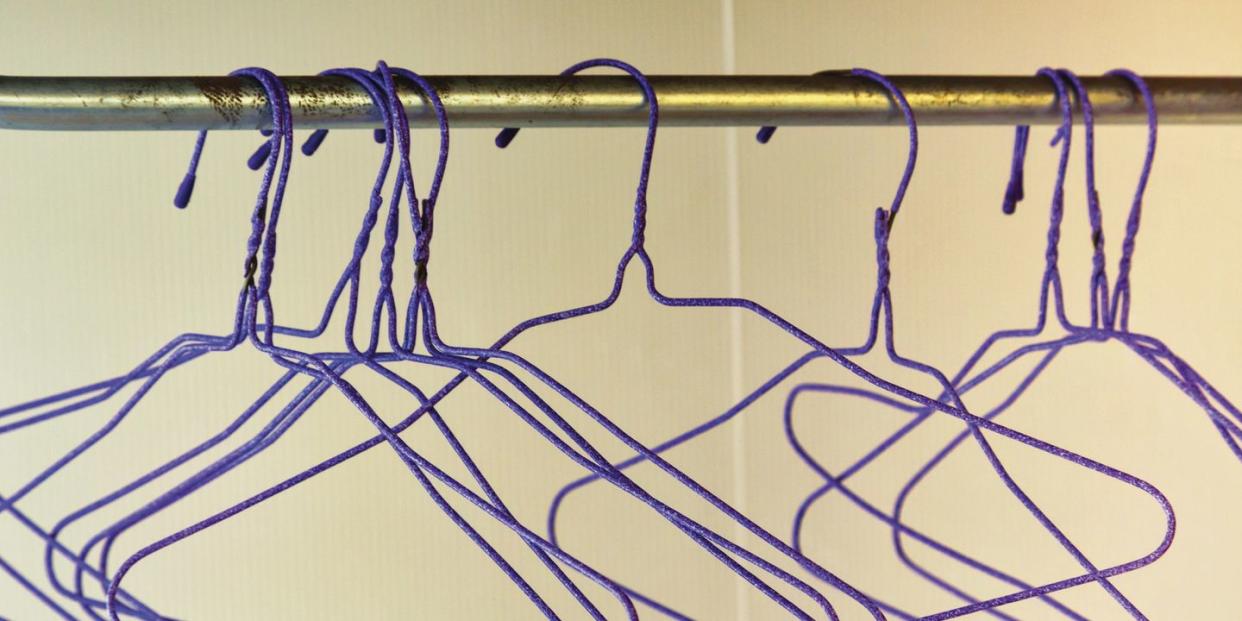The 'Hanger Reflex' Is a Bizarre New TikTok Trend

From the feta pasta recipe that everybody was making during lockdown (which tasted just fine) to the milk crate challenge (which you really probably shouldn't do), TikTok is a place where the oddest things can gain traction and be propagated across thousands of accounts and hundreds of thousands of FYP feeds.
The latest trend to take over the platform is the "hanger reflex," a simple but genuinely mystifying challenge which involves stretching out a wire coat hanger so that it fits onto your head. Once in place, the wearer will find their head moving completely involuntarily either to the left or the right.
No, really. Search "hanger reflex" on TikTok or Twitter and check out some of the videos of people freaking themselves out.
You'd be forgiven for thinking that they're all having you on. After all, it doesn't make any sense, does it? But unlike some other TikTok fads which have been spurious at best and outright hoaxes at worst, the "hanger reflex" does appear to be a real thing.
According to a Japanese study conducted in 2015, the involuntary movement happens as a result of the wire hanger applying pressure to the unilateral fronto-temporal region of the brain.
"In 85.4% of the trials, head rotation was observed in the direction that coincided with the side compressed by the hanger," wrote researchers. "There were no differences in responses between genders. The incident rate of the hanger reflex was remarkably high and most likely represents a prevalent phenomenon in humans."
The Hanger Reflex 👀
*yes this is how I’m spending my Friday night 😅* pic.twitter.com/vEXW6vHYhY— GOC (@GOC_Wrestling) May 21, 2022
Today I learned about the hanger reflex and so should you! 1/8 pic.twitter.com/wv3ARfh4C7
— David Schoppik (@schoppik) May 18, 2022
They went on to speculate that the "hanger reflex" could eventually be used as a means of treating patients suffering from cervical dystonia, a painful condition which causes the muscles in the neck to contract involuntarily: "The hanger reflex has potential to be a novel, less invasive, and inexpensive treatment for cervical dystonia... However, there is little evidence of what factors are needed to induce the hanger reflex, and the etiology of the phenomenon is still unknown."
You Might Also Like

